

Cocaine’s euphoric rush can morph into a daily need fast, rewiring reward pathways and making every thought orbit the next line or puff. Yet freedom is closer than it looks.
At Lexington Addiction Center, our cocaine rehab in Lexington, KY guides you through a proven outpatient continuum—Partial Hospitalization (PHP) for intensive daytime care, Intensive Outpatient (IOP) to balance work or school, and weekly Outpatient (OP) sessions for sustained momentum.
Each level combines evidence-based counseling with holistic wellness and peer accountability, allowing recovery to take root in real life, not just within a clinic.
Cocaine addiction begins with how the drug overruns your dopamine system.
Normally, dopamine is released in measured bursts and then reabsorbed, allowing you to feel pleasure from everyday rewards, such as good food, a hug, or an achievement at work.
Snorted powder or smoked crack cocaine blocks that reabsorption valve, flooding your brain with dopamine and creating an instant, euphoric spike. The brain quickly adapts by trimming dopamine receptors, so the next high feels weaker, and you end up craving larger or more frequent doses just to reach “normal.”
While both forms hit the brain fast, crack cocaine penetrates the bloodstream almost instantly, delivering a sharper—but shorter—blast of euphoria, which can drive even more compulsive use.
Acute harms include a racing heartbeat, dangerously high blood pressure, and a heightened risk of stroke.
Over time, chronic exposure reorganizes neural circuits that control judgment and impulse, fueling anxiety, depression, and relentless cravings—hallmarks of entrenched cocaine addiction.
Because these brain changes are both chemical and structural, you need targeted cocaine treatment options—not willpower alone—to reset the reward system and rebuild healthy dopamine balance.

Set yourself free from the struggles of addiction and co-occurring mental health disorders. Reach out to our treatment team in Lexington, Kentucky today.
Recognizing the warning signs of cocaine addiction can be the first step toward getting help.
Cocaine use can lead to a range of physical, behavioral, and psychological symptoms, many of which worsen over time without treatment.
If you’re seeing any of these signs in yourself or a loved one, it may be time to seek help from a trusted program. Our cocaine rehab in Lexington provides structured support, professional care, and evidence-based therapies to help you take back control.
Searching for a cocaine rehab near me can feel overwhelming, but Lexington Addiction Center makes the path forward clear and accessible.

From the moment you walk through our doors, the focus is calm, safety, and clarity.
You’ll begin with a same-day clinical assessment—a private meeting where a nurse and therapist review substance-use history, mental-health needs, and any medical concerns.
Vitals are taken, withdrawal symptoms are rated, and baseline labs are ordered if recent results aren’t available. Because overstimulation can spike anxiety, we keep the setting intentionally low-stimulus: soft lighting, minimal noise, and a comfortable lounge away from busy traffic.
Together, you and your counselor build a personal safety plan that covers craving triggers, emergency contacts, and coping strategies for the hours you’re off-site.
If the assessment flags a condition that requires medical clearance—such as uncontrolled hypertension or cardiac issues—we’ll schedule an off-site physician visit the same day or early the next morning, ensuring treatment starts without risky delays.
By the end of the day, you will leave with a printed schedule, group roster, and direct phone line to your primary therapist, so support is just one call away.

Our drug alcohol detox program gives you something the internet’s home-remedy tips never can: round-the-clock medical supervision from clinicians who’ve guided thousands through the roughest first days of sobriety.
We tailor evidence-based medications like buprenorphine for opioids or carefully titrated benzodiazepines for severe alcohol withdrawal to your exact physiology, so you stay safe while your body resets.

The partial hospitalization program (PHP) is our most structured outpatient option, offering full-day treatment four to five days a week. It’s a great fit for individuals transitioning out of detox or residential care who still require daily support to stay grounded and on track. You’ll have a packed schedule of therapy, groups, and wellness activities—all designed to help you stabilize and build momentum in early recovery.

Our intensive outpatient program (IOP) offers strong clinical support without the full-time commitment. You’ll attend therapy several times a week—often in the mornings or evenings—so you can continue working, going to school, or taking care of family. It’s ideal for those who want structure and accountability but are ready for more independence.

The outpatient program is our most flexible level of care, with sessions typically happening once or twice a week. It’s designed for those who’ve already made progress in their recovery but want continued guidance, check-ins, and a safe place to stay connected as life evolves. It’s ongoing support—on your terms.

Virtual outpatient care means you get the same licensed clinicians, evidence-based therapies, and medication support you would in the clinic, but from the comfort of your own home. With a secure video link and a decent internet connection, you can attend group therapy, meet with your counselor, and refill prescriptions without a commute.
For people living in Kentucky’s far-flung counties, telehealth closes the distance that so often stands between someone and treatment.

Our program, built by veterans for veterans, delivers evidence-based care alongside the camaraderie and mission-focused mindset that define effective veterans’ rehab. In short, rehab for veterans in Lexington, KY, must be custom-engineered to heal both battlefield wounds and the habits soldiers use to numb them.
This progressive ladder allows our cocaine addiction treatment programs to match your evolving needs, providing intensive care when cravings are loud and lighter touchpoints once new habits take root.
Effective recovery from cocaine addiction involves more than just stopping drug use—it requires addressing the underlying emotional, behavioral, and psychological patterns that fuel substance use.
At Lexington Addiction Center, our cocaine rehab program includes evidence-based and holistic therapies tailored to each individual.

At Lexington Addiction Center, we understand that overcoming cocaine addiction involves more than just stopping drug use—it requires addressing the underlying thoughts, emotions, and behaviors that keep individuals stuck in the cycle of addiction.
CBT is one of the most effective, evidence-based approaches for treating stimulant use disorders like cocaine addiction. It helps individuals recognize and change the thought patterns and beliefs that drive compulsive drug use.
During CBT sessions, clients work with trained therapists to:
CBT empowers clients to understand how their thoughts influence their actions. By becoming more aware of harmful thought loops, clients can interrupt the cycle of addiction and make more intentional, positive choices in their recovery.
This therapy is especially useful for individuals who struggle with anxiety, depression, or impulsivity—conditions that often co-occur with cocaine addiction.

DBT is a structured, skills-based therapy that helps individuals who experience intense emotions or have difficulty managing distress. While originally developed for borderline personality disorder, DBT has proven highly effective for treating substance use disorders, particularly stimulant abuse.
At Lexington Addiction Center, DBT helps clients:
DBT is ideal for clients dealing with unresolved trauma, emotional volatility, or high relapse risk. It teaches practical life skills that support both emotional balance and long-term sobriety.

At Lexington Addiction Center, we utilize Contingency Management (CM) as part of our comprehensive approach to treating cocaine addiction. CM is a behavioral therapy that reinforces positive actions by offering tangible rewards for meeting specific recovery goals. For individuals struggling with stimulant use—particularly cocaine—this evidence-based method has shown significant success in improving treatment engagement and reducing relapse.
We integrate Contingency Management into multiple levels of care—PHP (Partial Hospitalization Program), IOP (Intensive Outpatient Program), and Outpatient (OP). Whether you’re beginning your recovery or stepping down from a higher level of care, CM can support your progress.
Each client’s CM plan is personalized to reflect their treatment goals. For example:
These rewards help reinforce positive behavior and promote consistency—key components of successful recovery from cocaine addiction.

At Lexington Addiction Center, we understand that overcoming cocaine addiction isn’t just about willpower—it’s about discovering your own motivation to change. That’s why we incorporate Motivational Interviewing (MI) into our evidence-based treatment plans for cocaine addiction. MI is a client-centered counseling method designed to help individuals explore and resolve ambivalence about quitting drugs and committing to recovery.
Cocaine addiction can be complicated by denial, shame, or fear of failure—barriers that MI is specifically designed to address. In sessions with trained therapists, clients are encouraged to:
Unlike confrontational or directive approaches, MI is collaborative and empowering. Therapists act as partners in the process—not authority figures—fostering an atmosphere of safety, honesty, and respect.

At Lexington Addiction Center, we understand that cocaine addiction and unresolved trauma often go hand in hand. Many individuals use cocaine as a way to escape emotional pain, manage anxiety, or cope with past traumatic experiences. That’s why we integrate trauma-informed care—including advanced therapies like EMDR and Brainspotting—into our treatment plans for cocaine addiction.
These therapies go beyond traditional talk therapy by targeting the emotional wounds and neurological imprints that often drive substance use. By helping clients heal from trauma, we address the root causes of addiction—not just the symptoms.
EMDR: EMDR is an evidence-based therapy that helps clients safely reprocess traumatic memories using bilateral stimulation, such as guided eye movements. This process reduces the emotional intensity of those memories and helps break the cycle of trauma-driven substance use. EMDR is especially helpful for reducing anxiety, shame, and relapse risk.
Brainspotting: Brainspotting uses visual focus points to access where trauma is stored in the brain and body. It allows for deep healing—even when clients have difficulty verbalizing their experiences. This method is effective for emotional regulation, reducing cravings, and addressing chronic dysregulation.

At Lexington Addiction Center, we believe that healing from cocaine addiction requires more than just addressing the drug use itself—it involves treating the whole person: body, mind, and spirit. That’s why we integrate holistic therapies into our comprehensive treatment approach.
Cocaine addiction can take a serious toll on physical health, emotional well-being, and overall life balance. Holistic therapies help clients reconnect with themselves, manage stress, and restore inner stability—key elements of long-term recovery.
Holistic therapies complement clinical care, helping clients feel grounded, present, and empowered in their recovery journey. When combined with evidence-based treatment, they offer a full-spectrum approach to lasting sobriety.
Healing is more than abstinence—it’s renewal. Let us help you find balance again.
The length of cocaine rehab in Lexington depends on several factors, including the severity of addiction, mental health history, and personal recovery goals.
There is no one-size-fits-all timeline, which is why we create individualized treatment plans for every client.
Most recovery journeys begin with medical detox, which typically lasts 7 to 10 days. During this time, clients are safely stabilized as the drug leaves the body.
After detox, clients transition into a formal rehab program, which can vary in duration:
At Lexington Addiction Center, we believe lasting change happens over time.
Our cocaine addiction treatment programs evolve with you—offering continued support through every stage of recovery.
It’s not always easy to recognize when recreational use turns into cocaine addiction—but there are warning signs that it’s time to seek help.
Ask yourself:
If you answered yes to any of these questions, it may be time to consider cocaine rehab near me. The sooner you seek help, the better your chances of long-term recovery.
At Lexington Addiction Center, our team provides trusted cocaine addiction treatment near me in a safe, compassionate environment. You don’t have to wait until things get worse—help is available now.
In most cases, yes. We’re in-network with Anthem Blue Cross Blue Shield, Aetna, Cigna, Humana, UnitedHealthcare, and Kentucky Medicaid, and can often secure coverage from other PPO plans as well.
Call our admissions line and we’ll run a rapid, no-obligation verification—you’ll know your deductible, co-pay, and any out-of-pocket maximums within the hour. If coverage leaves a gap, we offer sliding-scale fees and zero-interest financing so cost never blocks care.
Curious how your policy stacks up?
Start the process on our insurance verification page or phone 859-636-0779 to let us handle the paperwork while you focus on getting well.

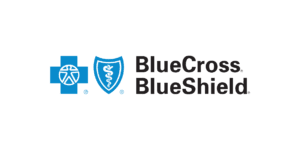
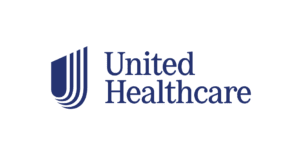

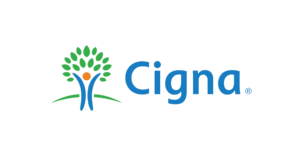
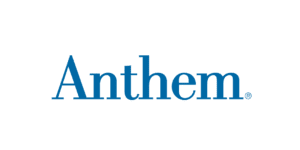
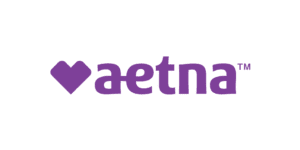
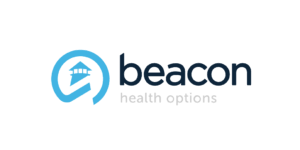
Graduation day is only the beginning; long-term success grows in community. Lexington Addiction Center keeps you plugged into multiple layers of support:
These overlapping circles create a safety net that makes relapse far less likely and keeps motivation high as real life resumes.
Starting cocaine rehab in Lexington, KY, is easier than you might think.
At Lexington Addiction Center, we’ve streamlined the admissions process to ensure you can begin treatment with minimal stress and maximum support.
Here’s how to get started:


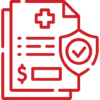

That’s it. Three simple steps turn “I need cocaine addiction treatment near me” into a concrete plan for recovery starting now.
Don’t let another day slip by while cocaine calls the shots; choose yourself instead. Cocaine Rehab in Lexington, KY at Lexington Addiction Center pairs proven therapy with real-world flexibility so you can get well without putting life on hold.
Take the first step right now—dial 859-636-0779 or submit our confidential form below. Our team will respond within minutes and schedule your PHP intake as soon as tomorrow, and walk beside you every day after.
Cocaine addiction doesn’t define you—and with the right help, it doesn’t have to control your future.
At Lexington Addiction Center, we offer a compassionate path forward. Our team is here to help you rebuild, recover, and rediscover your strength.
If you’re looking for trusted cocaine rehab in Lexington, KY, we’re ready when you are.
Whether you need intensive care or flexible outpatient support, we’ll tailor your plan to match your life.
Don’t wait for things to get worse. Real healing starts today—right here, at a cocaine rehab near me that truly cares.
Cocaine hijacks the brain’s dopamine system by blocking the reabsorption of dopamine, creating a short-lived euphoric spike. Over time, this rewires reward pathways, lowers dopamine sensitivity, and fuels compulsive use. Crack cocaine works even faster, causing an intense but brief high that leads to repeated, binge-like use. These neurochemical changes contribute to cravings, poor impulse control, anxiety, and depression—making cocaine addiction both powerful and persistent.
Warning signs include:
Physical: Nosebleeds, weight loss, burn marks, insomnia
Behavioral: Binge–crash patterns, skipping obligations, financial trouble
Psychological: Mood swings, irritability, paranoia, depression after use
If these symptoms are present, structured cocaine rehab can help interrupt the cycle and build healthier coping skills.
You’ll receive a same-day clinical assessment to evaluate your substance use history, mental health, and medical needs. You’ll collaborate with a therapist to create a personal safety plan, and if needed, we arrange medical clearance for conditions like hypertension. You’ll leave with your full schedule, group assignments, and a direct contact for your primary therapist.
Lexington Addiction Center offers:
PHP (Partial Hospitalization) – 6–8 hours/day, 5 days/week of intensive therapy and medical monitoring
IOP (Intensive Outpatient) – 3–5 sessions/week with group therapy, individual counseling, and relapse prevention
OP (Outpatient) – 1–2 sessions/week for long-term support and accountability
These levels allow you to step down gradually as stability increases.
Our program blends:
CBT & DBT for thought and emotion regulation
Contingency Management for incentive-based motivation
Motivational Interviewing to build internal readiness
EMDR & Brainspotting to resolve trauma
Holistic therapies including yoga, breathwork, and nutrition counseling
Together, these approaches support brain healing, behavioral change, and emotional wellness.
Treatment typically spans 30, 60, or 90 days, depending on your history, mental health needs, and home environment. Clients with long-term use or trauma benefit from 90 days, while others may stabilize in less time. All care is outpatient, so you can maintain work, school, or family obligations while receiving structured treatment.
Yes. We accept most major plans, including Anthem, Aetna, Cigna, Humana, UnitedHealthcare, and Kentucky Medicaid. We offer fast insurance verification, often within an hour, and provide flexible payment options like sliding-scale fees and interest-free financing.
We provide long-term support through:
Alumni events – Monthly sober meet-ups and social activities
Peer-recovery coaching – One-on-one check-ins post-treatment
Local recovery groups – Access to AA/NA, SMART Recovery, and Refuge Recovery
Family workshops – Quarterly sessions to support loved ones
These resources create a safety net that keeps you connected and motivated after treatment.
It only takes three steps:
We handle the logistics so you can focus on getting well. Recovery is just one call away.
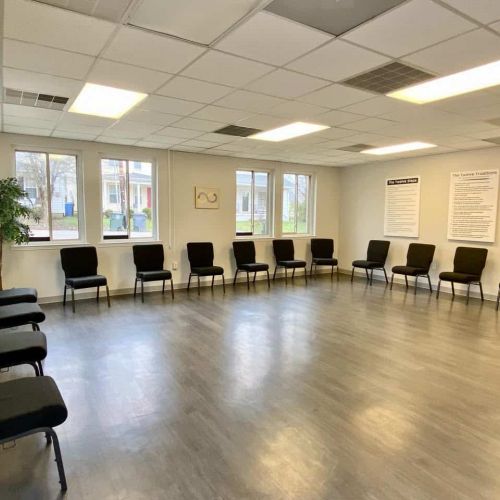





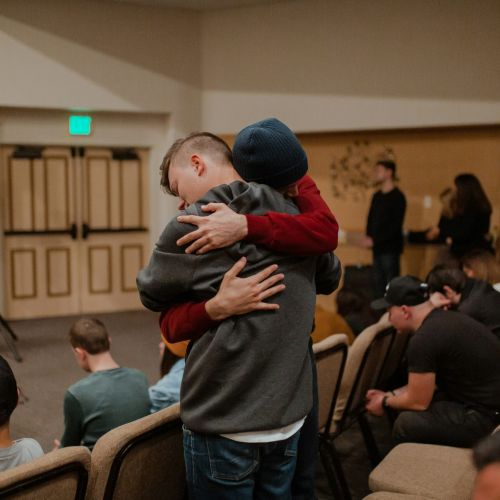

Get Family Support Now
We understand addiction affects the whole family. Our comprehensive family program helps rebuild trust and restore relationships.
Weekly Family Therapy Sessions
Educational Workshops
Support Groups
Communication Skills Training


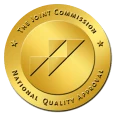



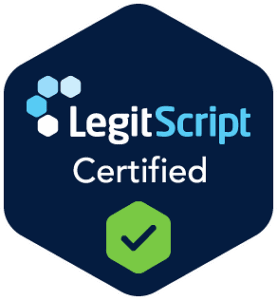
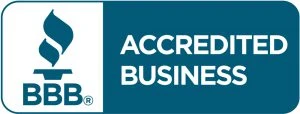





American Society of Addiction Medicine, & American Academy of Addiction Psychiatry. (2024). The ASAM/AAAP Clinical Practice Guideline on the Management of Stimulant Use Disorder. Journal of Addiction Medicine, 18(1), 1–56. https://stacks.cdc.gov/view/cdc/156927 CDC Stacks
Bentzley, B. S., Han, S. S., Neuner, S., Humphreys, K., Kampman, K. M., & Halpern, C. H. (2021). Comparison of treatments for cocaine use disorder among adults: A systematic review and meta-analysis. JAMA Network Open, 4(5), e218049. https://doi.org/10.1001/jamanetworkopen.2021.8049 JAMA Network
Castells, X., Casas, M., Pérez-Mañá, C., Roncero, C., Vidal, X., & Capellà, D. (2016). Psychostimulant drugs for cocaine dependence. Cochrane Database of Systematic Reviews, 2016(9), CD007380. https://doi.org/10.1002/14651858.CD007380.pub4 Cochrane Library
Centers for Disease Control and Prevention. (2024, December). Drug overdose deaths in the United States, 2003–2023 (NCHS Data Brief No. 522). https://www.cdc.gov/nchs/data/databriefs/db522.pdf CDC
Centers for Disease Control and Prevention. (2025, August 28). Drug overdose deaths involving stimulants—United States, January 2018–June 2024. MMWR, 74(32), 492–500. https://www.cdc.gov/mmwr/volumes/74/wr/mm7432a1.htm (PDF) CDC
Drug Enforcement Administration. (2025, September). CY2024 Annual Cocaine Report (PRB-2025-42). https://www.dea.gov/…/CY2024%20Annual%20Cocaine%20Report%20PRB-2025-42%20Final.pdf DEA
National Institute on Drug Abuse. (n.d.). Cocaine. Retrieved October 9, 2025, from https://nida.nih.gov/research-topics/cocaine National Institute on Drug Abuse
Substance Abuse and Mental Health Services Administration. (2021). TIP 33: Treatment for stimulant use disorders (PEP21-02-01-004). https://www.govinfo.gov/content/pkg/GOVPUB-HE20_400-PURL-gpo171771/pdf/GOVPUB-HE20_400-PURL-gpo171771.pdf GovInfo
World Health Organization. (2023). mhGAP guideline update evidence profile DRU2: Pharmacotherapies for adults with cocaine or stimulant dependence. https://cdn.who.int/media/docs/default-source/mental-health/mhgap/drug-use-disorders/dru2_evidence_profilev3_0%2817022023%29.pdf cdn.wh

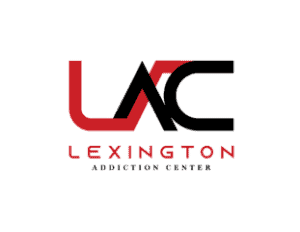
Addiction and co-occurring disorders don’t have to control your life. Lexington Addiction Center is waiting with open arms to give you the tools necessary for lasting change. Reach out to us today to learn more.